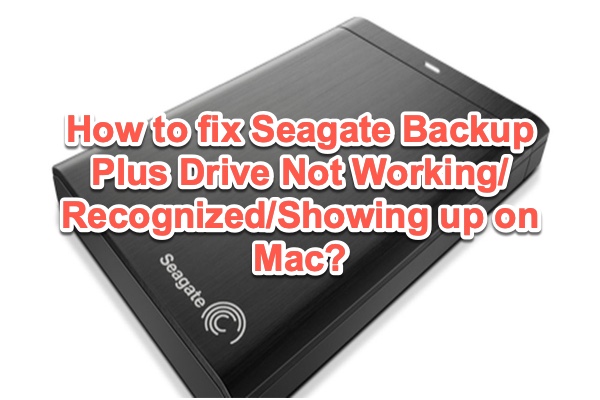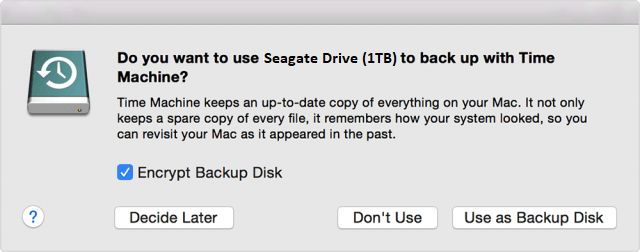

- FORMAT MY SEAGATE BACKUP PLUS FOR TIME MACHINE ON MAC MAC OS
- FORMAT MY SEAGATE BACKUP PLUS FOR TIME MACHINE ON MAC MAC
- FORMAT MY SEAGATE BACKUP PLUS FOR TIME MACHINE ON MAC WINDOWS
FORMAT MY SEAGATE BACKUP PLUS FOR TIME MACHINE ON MAC MAC
exFAT is not a journaled file system which means it can be more susceptible to data corruption when errors occur or the drive is not disconnected properly from the computer.įAT32-Compatible with Mac and Windows.
FORMAT MY SEAGATE BACKUP PLUS FOR TIME MACHINE ON MAC WINDOWS
Windows cannot natively read or write to HFS+ (journaled) volumes.

FORMAT MY SEAGATE BACKUP PLUS FOR TIME MACHINE ON MAC MAC OS
Mac OS Extended (HFS+)-The native hard drive file system for macOS. macOS can read NTFS volumes but cannot natively write to them. Use Disk Management (Windows) or Disk Utility (Mac) to format your drive in non-native formats. About the only cure is to get a new drive, one that either doesn't have the power save function or sleep function, or to use something like Amphetamine (search for it) to query all attached drives every few seconds to keep them spinning.Format your drive for optimal performance with just a few simple clicks. Then when TM wants the drive, the drive has to wake up, spin up and respond, but takes too long to accomplish that before the OS says the drive isn't there, triggers TM to fail and the message about being ejected improperly. When the drive thinks it's not in use, it powers down. When I have seen that message before has been when I have a drive that has a sleep function, or a power save function. If that occurs in the middle of a backup, TM will error out.

I suspect the issue is not with TM, but with whatever is triggering the "Backup not ejected properly" message. Given that background, how are you getting the "list" of the drives that shows the two? It is perfectly normal and expected to have two. And if you use Finder to look at the backup drive directly, you can see the two volumes separately backed up because TM must do that to recreate the two volumes if you need to restore. However, outside Finder, using Disk Utility, for example, you can see both volumes in the Container. Finder and other parts of Catalina merge these two into one virtual drive for the user so that the user experience is what it has been for a long time, that is, there is a Macintosh HD that represents the boot drive. The Data drive has all of the user information and the other has all of the system information. Macintosh HD and Macintosh HD - Data are two volumes that Catalina creates and are both valid names and drives. I'll try another restart and see what happens. Sometimes the backup has worked properly even with this message occuring. I go through periods where the computer says, "Backup not ejected properly". One other thing, and I don't know if it is related or not, and it has been ocurring for a long time. It backed up for ten days successfully after installing Catalina, then started the backup fail. Rename one of the disks named "Macintosh HD". Two of the disks to back up have the same name. Time Machine couldn't complete the backup to "Seagate Backup Plus Drive" When I got home from work this afternoon, there was a "backup fail" message again. It backed up several times yesterday, and once at 6:24 AM this morning.


 0 kommentar(er)
0 kommentar(er)
